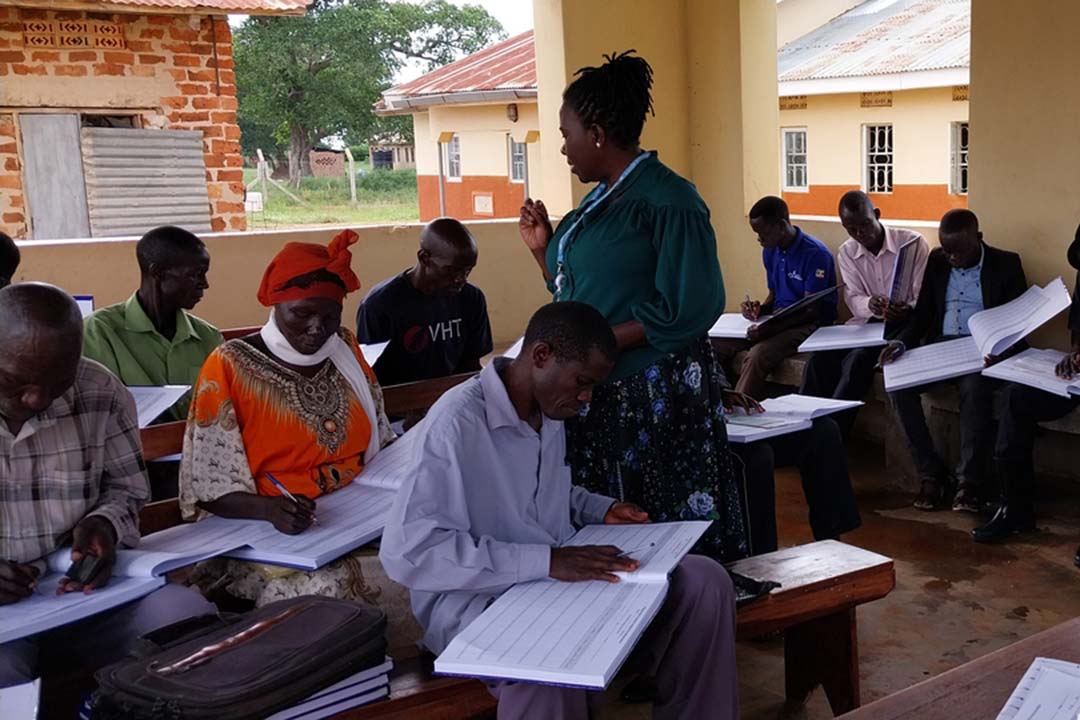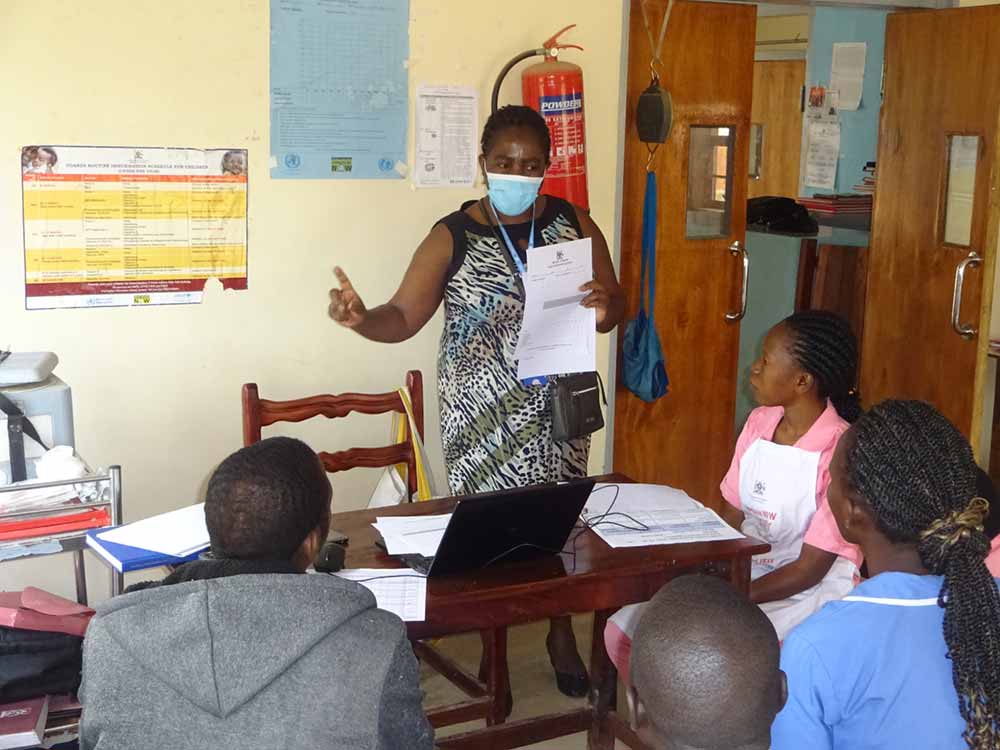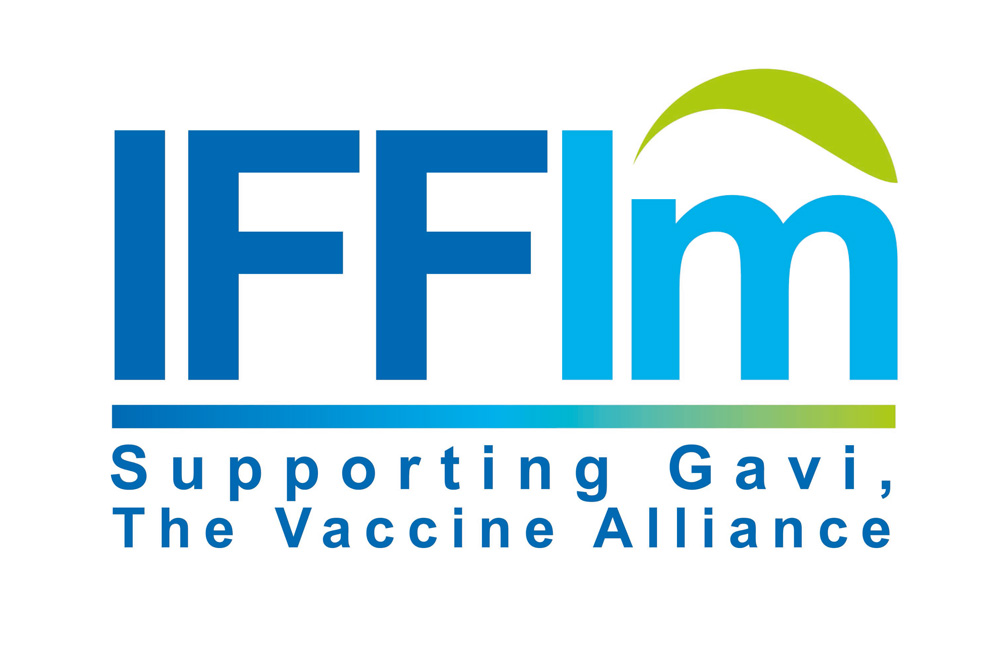ZDC superheroes: the consultants helping to vaccinate vulnerable kids in Uganda
- Impact
- ZDC superheroes: the consultants helping to vaccinate vulnerable kids in Uganda
ZDC superheroes: the consultants helping to vaccinate vulnerable kids in Uganda
30 January 2024

Namaalwa supporting VHTs to strengthen their capacity to scale up village child registration to track their immunisation statuses at Kagumba HCIII in Kamuli district. Credit: John Agaba
About 3% of Ugandan children remain unvaccinated. Public health consultants Milly Namaalwa and Dominic Kakeeto have designed a strategy to change that.
About 3% of Ugandan children remain unvaccinated. Public health consultants Milly Namaalwa and Dominic Kakeeto have designed a strategy to change that.
By John Agaba
IFFIm impact: Zero-dose children
Millions of "zero-dose" children have yet to receive a single vaccine. IFFIm supports Gavi’s strategy to immunise them by providing one-sixth of Gavi’s overall program funding.
The year 2023 was coming to an end, but before the holidays, Milly Namaalwa needed to meet with a few more health workers and village health teams (VHTs) in Kamuli district in eastern Uganda. Her aim: to assess their efforts to reduce the numbers of unvaccinated kids in their area.

Namaalwa climbed into her Toyota pick-up and embarked on the 118km journey from Kampala, the capital, to Kamuli, where she made a first stop at Kagumba Health Centre III.
There, she met more than a dozen health workers and VHTs. She paged through their reports and sought feedback from the VHTs about reaching unvaccinated kids, before commending them on their "significant work" to protect Ugandan children from vaccine preventable diseases.
Zero-dose worries
Like much of the rest of the world, Uganda's immunisation system took a hit during the COVID-19 pandemic. In 2019, 93% of Uganda's children had been vaccinated with the third and final dose of the basic diphtheria, pertussis and tetanus-containing vaccine (DPT3), which is conventionally used as a proxy for vaccination coverage in general. By 2022, that figure had dropped to 89%.
The number of totally unvaccinated children, sometimes termed "zero-dose children" (ZDCs), also grew. According to Ministry of Health data, approximately 3% of Ugandan children lack the protection of a single vaccine.
When a 2022 survey by the School of Public Health at Makerere University revealed that four districts – namely Wakiso, Mukono, Kampala and Kamuli – were home to 29% of the country's zero-dose children and 15% of its under-immunised children (UIC), the government turned to Namaalwa and her colleague Dominic Kakeeto for help.
"They are professionals with a great work ethic. They understand that you are serving beyond self, being a health worker."
– Mebra Kakazi, a clinical officer in Kamuli
Both public health professionals and immunisation specialists with years of experience, Namaalwa and Kakeeto took up the challenge – and have since been on a mission to crack Uganda's ZDC puzzle, and help protect the most at-risk with vaccines.
"We can't take vaccines' success for granted"
At another health facility, a few kilometres outside of Kampala, Kakeeto rallied a separate group of VHTs and health workers to continue to advocate for immunisation and the reach of zero-dose children.
"Vaccines are safe and effective," he explained to the group. "They have helped us to control a number of VPDs [vaccine-preventable diseases] such as polio, measles and whooping cough… But we can't take this success for granted. That is why it is important we vaccinate every child."

ZDC rates at almost 0%...
"They have designed a strategy to identify, monitor and advocate for the reach of ZDC and under-immunised children in four priority districts in Uganda, including Wakiso, Mukono, Kampala and Kamuli," Dr Immaculate Ampeire, senior medical officer at the Ministry of Health in Uganda, said of Namaalwa and Kakeeto. "They have trained and mentored health workers in the districts to implement this strategy – which basically aims at reaching ZDC – and are directly running outreaches to vaccinate these children."
The pair’s effort has helped to significantly reduce the number of ZDC in the four districts from more than the national average in 2022 to almost 0% today and reduced vaccine dropout rates (DPT 1–DPT3*) from 8% to 6%.
"The ZDC consultants have engaged the districts' health teams to improve planning and management of immunisation services," Lucy Nakyomu, a senior clinical officer and in-charge of Bugulumbya HC III in Kamuli district elaborated. "They understand that immunisation is a triangle and have upskilled the health teams in effective cold chain and vaccine management practices to ensure vaccines and supplies remain available and potent to cause immunity."
"They are professionals with a great work ethic," said Mebra Kakazi, a clinical officer in Kamuli, who has adopted quality improvement initiatives to improve immunisation performance at her health facility after listening to the pair. "They understand that you are serving beyond self, being a health worker."
The pair's effort has helped to significantly reduce the number of ZDC in the four districts from more than the national average in 2022 to almost 0% today and reduced vaccine dropout rates (DPT 1–DPT3*) from 8% to 6%.
…but further to go
But Namaalwa believes they can improve further.
"We have come up with a tool that mirrors the child register, to enable the VHTs to profile the immunisation status of every eligible child at household level in Kamuli district," said Namaalwa in an interview with VaccinesWork after her sojourn at Kagumba Health Centre III. "The idea is to profile these children to help health facilities keep track of children who are eligible for vaccination."
The ZDC consultant goes through this register to ensure the VHTs are feeding in accurate information about the child's sex, name, date of birth and dates of vaccinations, plus their geographical location and caretaker's contacts.
Then she looks at the number of children the VHTs have registered to tease out those under one year of age and compare that list with the ministry's projected figures of surviving infants in that village at that moment in time.
This helps to identify registered children who don't have vaccination dates, implying that they have not been immunised and are ZDC.
"These ZDC become a priority for follow-up, to have them vaccinated at whatever cost," said Namaalwa. "We want to reach and vaccinate every child because immunisation is the best gift we can give to our children to protect them from VPDs."
Becoming a ZDC ace
Born in central Uganda, Namaalwa trained as a nurse. After graduating with a master's of public health, she worked with local governments and international agencies such as JSI, USAID and UNICEF to support Uganda's Ministry of Health in improving its immunisation services.
“We want to reach and vaccinate every child because immunisation is the best gift we can give to our children to protect them from VPDs.”
– Milly Namaalwa, ZDC consultant
For his part, Kakeeto trained as a medical clinical officer before graduating with a master's of public health in health promotion and heading immunisation services at district level in the country.
Both Namaalwa and Kakeeto have more than 20 years' experience in planning, management and implementation of immunisation programme activities.
When the Ministry of Health, through UNICEF, reached out to the pair, asking them to support Uganda's effort to reduce its zero-dose burden in the four vulnerable districts, they welcomed the task.
"We had to design a strategy to reduce this [disproportionately high] zero-dose burden in relation to Gavi's target of reducing ZDC by 50% by 2030," said Namaalwa.
Making a practicable plan
The pair started by mapping health facilities in the target districts and their catchment areas. They supported the districts to categorise villages within five-kilometre radiuses of health centres, and stipulated outreaches for villages that were either outside the radius or cut off by physical barriers like rivers. Then, they liaised with VHTs and facilitated health workers to arrange the monthly outreaches into a predictable, reliable immunisation programme with a specific venue, time and day of the week.
"This strategy has enabled us to reach almost every child that was missing out on immunisation," said Namaalwa.
Then the consultants encouraged the districts to introduce differentiated immunisation models to vaccinate children in particularly vulnerable communities, such as slums and refugee settlements.
"We may be talking about districts in the central region – Wakiso, Mukono and Kampala are located in central Uganda; only Kamuli is in the eastern part of the country – which, ordinarily, should have easy access and utilisation of immunisation services. But we have pockets of rural areas here, some of which are really hard to reach," said the ZDC consultant. "These are the ones that we are focusing on for tailored and caretaker-centred vaccination touch moments."
The pair have also empowered a number of health facilities in the capital city to set up daily immunisation sessions to minimise missed opportunities.
"We are supporting Kampala to enlist as many private outlets as possible, because we know that over 90% of service delivery in the capital is through private practitioners," said Kakeeto.
Challenges persist
All these interventions - mapping of catchment areas, child registrations and onsite mentorship of health workers - have helped to reduce ZDC and vaccine dropout rates across the districts.

"The challenge is that we still have knowledge gaps and vaccine hesitancy, in significant part, due to myths and misinformation spread over social media," said Kakeeto. "Some mothers tell us that their husbands stop them from taking children for immunisation because the men have read on social media that vaccines aren't safe." Others complain of long distances between their homes and health facilities.
But the consultants and the Ministry of Health are empowering the VHTs and local leaders to dispel these myths.
"We still have knowledge gaps and vaccine hesitancy, in significant part, due to myths and misinformation spread over social media."
– Dominic Kakeeto, ZDC consultant]
"We are orienting health workers about quality improvement initiatives to improve immunisation services in the country," said Kakeeto. "We are building the capacity of VHTs, the health unit management committees and leaders at village and sub-county levels to create awareness and demand for immunisation."
The consultants are also rooting for a scale-up of the electronic child health information system to identify and link eligible children for immunisation in a timely fashion.
"The good thing is, we have a law that mandates Ugandan parents to have their children vaccinated," said Kakeeto.
 | This article is republished from VaccinesWork under a Creative Commons license. Read the original article. VaccinesWork is an award-winning digital platform hosted by Gavi, the Vaccine Alliance covering news, features and explainers from every corner of global health and immunisation. |
Share this article
Restricted Access Library
 The material in this Restricted Access Library is intended to be accessed only by persons with residence within the territory of a Member State of the European Union and is not intended to be viewed by any other persons. The material in this Restricted Access Library is provided by IFFIm for information purposes only and the materials contained herein were accurate only as of their respective dates. Certain information in the materials contained herein is not intended to be, and is not, current. IFFIm accepts no obligation to update any material contained herein.
The material in this Restricted Access Library is intended to be accessed only by persons with residence within the territory of a Member State of the European Union and is not intended to be viewed by any other persons. The material in this Restricted Access Library is provided by IFFIm for information purposes only and the materials contained herein were accurate only as of their respective dates. Certain information in the materials contained herein is not intended to be, and is not, current. IFFIm accepts no obligation to update any material contained herein.
Persons with residence outside the territory of a Member State of the European Union who have access to or consult any materials posted in this Restricted Access Library should refrain from any action in respect of the securities referred to in such materials and are otherwise required to comply with all applicable laws and regulations in their country of residence.
By clicking Access restricted content: DYNAMIC-LINK-TEXT I confirm that I have read and understood the foregoing and agree that I will be bound by the restrictions and conditions set forth on this page.
The materials in this Restricted Access Library are for distribution only to persons who are not a "retail client" within the meaning of section 761G of the Corporations Act 2001 of Australia and are also sophisticated investors, professional investors or other investors in respect of whom disclosure is not required under Part 6D.2 of the Corporations Act 2001 of Australia and, in all cases, in such circumstances as may be permitted by applicable law in any jurisdiction in which an investor may be located.
The materials in this Restricted Access Library and any documents linked from it are not for access or distribution in any jurisdiction where such access or distribution would be illegal. All of the securities referred to in this Restricted Access Library and in the linked documents have been sold and delivered. The information contained herein and therein does not constitute an offer for sale in the United States or in any other country. The securities described herein and therein have not been, and will not be, registered under the U.S. Securities Act of 1933, as amended (the "Securities Act"), and may not be offered or sold in the United States except pursuant to an exemption from, or in a transaction not subject to, the registration requirements of the Securities Act and in compliance with any applicable state securities laws.
Each person accessing the Restricted Access Library confirms that they are a person who is entitled to do so under all applicable laws, regulations and directives in all applicable jurisdictions. Neither IFFIm nor any of their directors, employees, agents or advisers accepts any liability whatsoever for any loss (including, without limitation, any liability arising from any fault or negligence on the part of IFFIm or its respective directors, employees, agents or advisers) arising from access to Restricted Access Library by any person not entitled to do so.
"Relief" for mothers in Bayelsa state as malaria vaccine makes waves
07 November 2025
